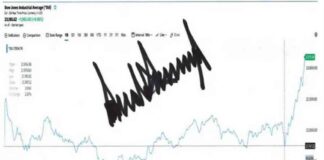Japan’s Economy Boosted by Strong Yen: The Impact on the Market
In recent days, the Japanese yen has experienced significant fluctuations in value, leading to speculation that the Bank of Japan may be intervening in currency markets. This sudden surge in the yen’s value has implications for Japan’s economy and the global market as a whole.
The Impact of a Strong Yen on Japan’s Economy
A strong yen can have both positive and negative effects on Japan’s economy. On one hand, a strong currency can make imports cheaper, benefiting consumers and reducing inflationary pressures. Additionally, a strong yen can attract foreign investors, leading to increased capital inflows and investment in Japanese assets.
However, a strong yen can also have negative consequences for Japan’s export-oriented economy. A higher yen makes Japanese exports more expensive for foreign buyers, potentially leading to a decline in export competitiveness and a decrease in export revenues for Japanese companies. This can have a negative impact on economic growth and employment in Japan.
The recent surge in the yen’s value, reaching ¥156 to the dollar, represents a 4% increase against the greenback. This comes after the yen had hit 37-year lows earlier in the month. The Bank of Japan’s potential intervention in currency markets has raised questions about the central bank’s motives and the long-term implications for Japan’s economy.
Market Reaction to the Strong Yen
The impact of a strong yen on the market is complex and multifaceted. Japanese stocks have been on an astonishing run in recent months, defying expectations and reaching new highs. However, the surge in the yen’s value could pose risks to the stock market, particularly for export-oriented companies whose profitability may be affected by the currency fluctuations.
Investors have been closely monitoring the impact of the strong yen on Japanese stocks, with concerns about the potential implications for corporate earnings and economic growth. The yen’s strength has produced a weak yen, which could dampen investor sentiment and lead to increased volatility in the market.
The global market is also watching closely as the yen’s value continues to fluctuate. The impact of a strong yen on Japan’s economy could have ripple effects on other economies, particularly those that rely on Japanese exports. China, for example, is facing miserable economic growth figures, exacerbated by the strong yen and its impact on trade with Japan.
The Role of the Bank of Japan
The Bank of Japan’s potential intervention in currency markets has raised questions about the central bank’s motives and the effectiveness of its policies. While central banks often intervene in currency markets to stabilize exchange rates and support economic growth, the impact of such interventions can be unpredictable and may have unintended consequences.
The Bank of Japan’s actions in response to the surge in the yen’s value will be closely watched by investors and policymakers. The central bank’s ability to effectively manage the currency fluctuations and support Japan’s economy will be crucial in determining the long-term outlook for the yen and the market as a whole.
In conclusion, the impact of a strong yen on Japan’s economy and the market is a complex and evolving issue. While a strong currency can have both positive and negative effects, the recent surge in the yen’s value has raised questions about the Bank of Japan’s intervention and the implications for Japan’s economic outlook. Investors and policymakers will be closely monitoring the situation as it continues to unfold.

















